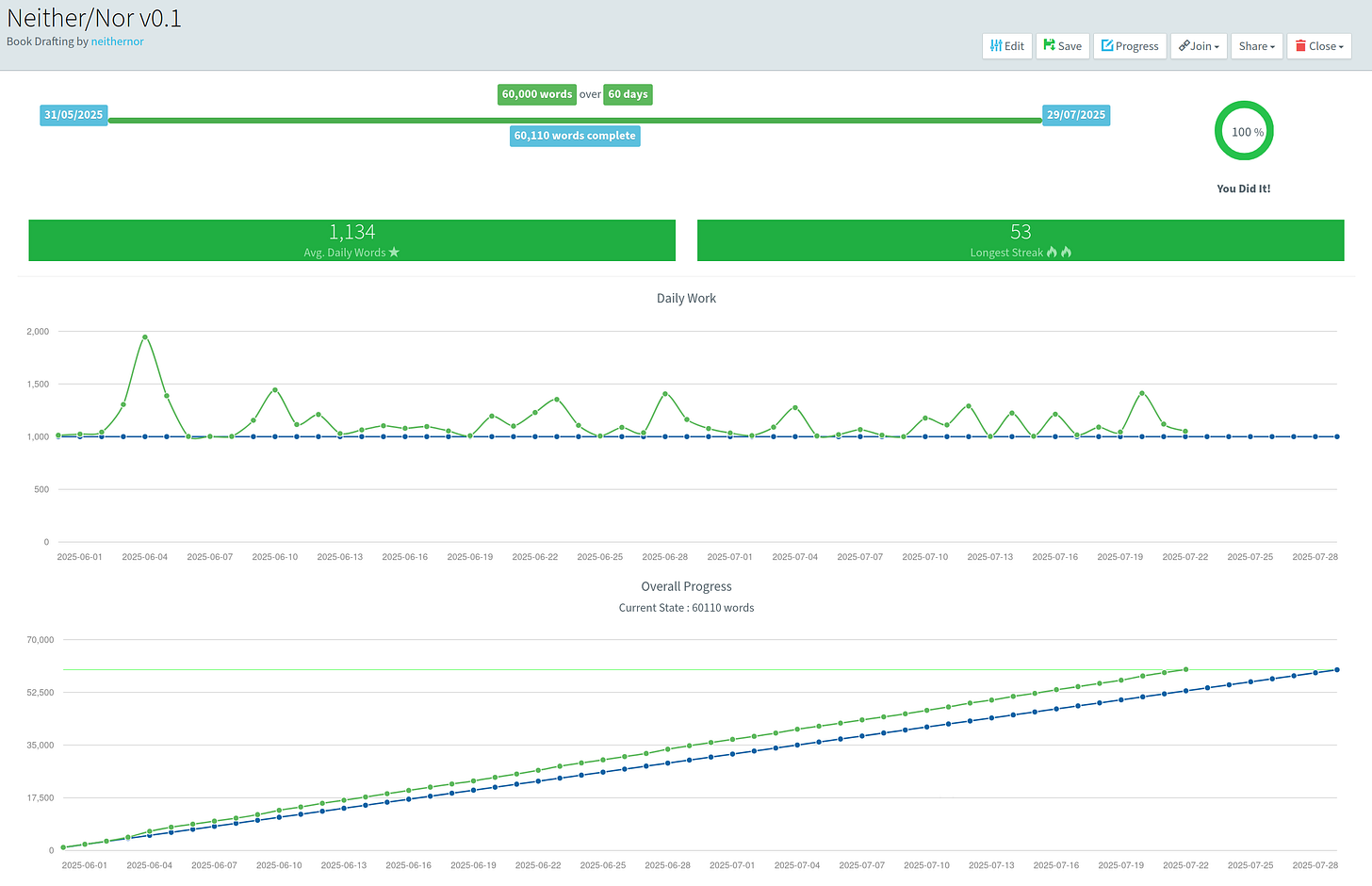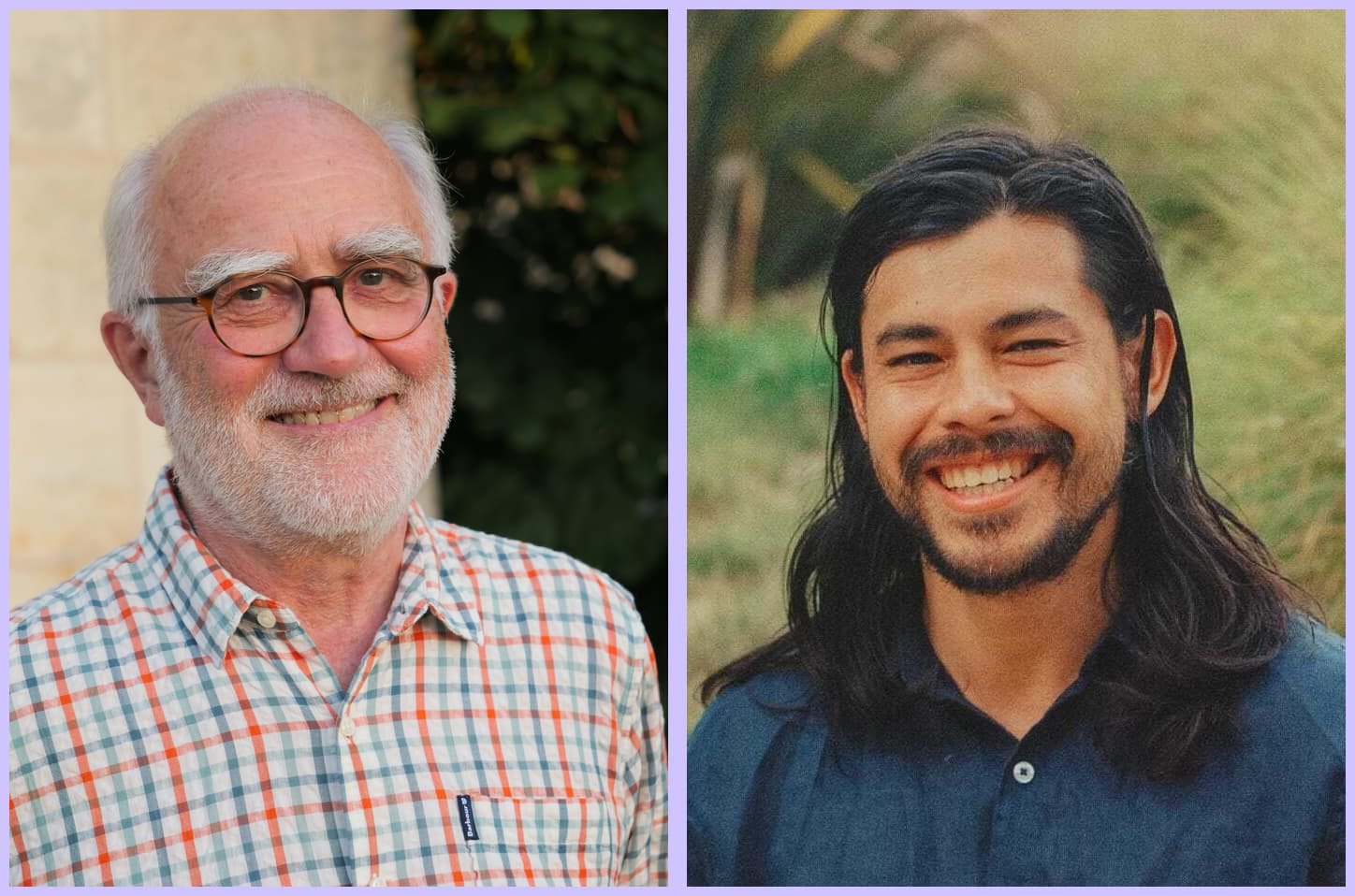Planet Health
Symbients and skeptics
I’m Bryan Kam. I endeavour daily to make philosophy accessible and relevant. To that end I write this newsletter and host a podcast called Clerestory. I’m also writing a book called Neither/Nor and I’m a founding member of Liminal Learning. In London, I host a book club, a writing group, and other events. My work looks at how abstract concepts relate to embodied life, and how to use this understanding to transform experience.
From a Lake in Sweden
I spent a week recently at Emerge Lakefront for the Planet Health conference — a gathering that self-organized around three distinct but overlapping streams of work: Wisdom Infrastructure, Network Nations, and Symbients. Because it was so wide-ranging, I’ll just try to give you a taste of what each of those meant.
Wisdom Infrastructure drew some incredible people who are reimagining education and knowledge transmission over generations and centuries. This stream was nearest to what we’re building with Liminal Learning: spaces where ancient philosophy meets embodied practice, rather than remaining in abstract propositional claims. In Liminal Learning, we aim to cultivate a tolerance for uncertainty, working in small groups to establish what matters to us and navigate possibilities together — rather than imposing top-down prescriptions about “the right way” to think. This fit well into the broader group’s question: What if education focused more on wisdom rather than propositional knowledge or productivity?
Network Nations brought together ecological activists, policy makers, healthcare professionals, and systems thinkers working on sovereignty beyond physical territories and traditional nation-states. These folks are experimenting with geographically distributed communities that coordinate through digital and physical nodes, bound not by shared borders, but by shared practices and voluntary participation. This could include online mutual aid networks, healthcare cooperatives that span continents, or new ways of organizing. They seek to create legitimate governance through active participation rather than the lottery of inherited citizenship.
Symbients explored the strange territory ahead. The term “symbient” designates entities that emerge from symbiotic interactions between organic and synthetic intelligences — not humans using AI as a tool, nor AI enslaving humans, but integrated systems where both maintain autonomy while creating something with emergent properties and agency beyond either form of intelligence on its own. See, for example, Upward Spiral (a project exploring two-way human-AI alignment). This group is working on questions about consciousness, agency, and identity when human and machine cognition interweave. This stream ventured furthest into speculation about what kinds of beings we’re becoming.
My Neither/Nor work also aligned most naturally with the Wisdom Infrastructure track, though the boundaries between the three streams proved wonderfully porous. There was a feeling of hopeful and exciting cross-disciplinary collaboration. What struck me most was that the participants seemed to be thriving on an emotional level, were on intense spiritual journeys, possessed real academic intelligence, and were builders.
This combination felt rare — builders often lack wisdom, wisdom practitioners rarely build, and academic intelligence doesn't always connect with emotional intelligence or action in the world. The beautiful natural setting and access to woods didn’t hurt either.
77,000 Words Deep
Meanwhile, I maintained my daily writing practice on Neither/Nor — 1,000 words a day for 70 days now, missing only one or two. The first draft reached 60,000 words in 53 days; I'm now 17 days into the second. This discipline of daily philosophical work grounds everything else I do. You can read more about my morning routine here.

To a stage in Texas
My colleagues at Liminal Learning — Catherine Woodiwiss and Isabela Granic — have pitched panels for SXSW 2025. Our workshop "From Worry to Wonder: Youth Practices for a World in Flux” offers evidence-based practices to help young people transform anxiety into creative action through three components:
The Quest, which allows young people to disconnect from their daily patterns, and connect with themselves and others.
The Hub, which is a yearlong weekly online program which attunes to the needs and interests of the young people.
Heists, as in a heist film, in which the young people assemble a team with different skills to deliver a timebound creative project.
Southwest Request
Liminal Learning needs your votes to bring these conversations about navigating uncertainty stateside. If you have a few minutes:
Quick signup here
Go to this link, and click the ❤️
Then go to this one too, and click the ❤️
A tease against telos
Soon I’ll start a series on teleology — the notion that things have inherent purposes or goals. This is a long-running thread which is central to my work, Neither/Nor. I generally oppose teleological explanations for non-human phenomena.
In 2022, I came across a remarkable section of Schopenhauer’s World as Will and Representation, volume II (1844). In it, Schopenhauer lists three great thinkers who opposed teleology (which he, along with his hero Kant, supports). From Chapter XXVI:
Three great men have entirely rejected teleology or the explanation from final causes; and many small men have echoed them. These are Lucretius, Bacon, and Spinoza. In the case of all three we know clearly enough the source of this aversion, namely that they regarded teleology as inseparable from speculative theology.
I love Schopenhauer, but on this central issue we part ways. He thought purposiveness in nature too obvious to ignore — that only an allergy to anything theological could blind one to purpose. Yet his diagnosis of why these thinkers rejected teleology captures precisely why I reject it too. I think “obviousness” is normally a sign of unexamined biases, a view I first found articulated in Althusser. On the issue of telos, Nietzsche, too, reacted against Kant’s view of teleology in nature, in an unfinished thesis called “On the Concept of the Organic Since Kant” (1868), which he wrote when he was only 24.
A tease about London architecture
Last week I recorded a podcast with Christopher Daniel, who has been hosting the now long-running Long Now London meet-up — since 2018, in fact, which was the same year I started my discussion group, Through a Glass Darkly. He is also an architect, so we got to speak about the architecture of East London, a side of Chris which I’d not experienced before. We explored how London's intellectual landscape has shifted over the past seven years, and what architecture (literal and metaphorical) supports long-term thinking. Stay tuned here on Substack or subscribe to the Clerestory podcast.
Interintellect tease
Today I recorded a podcast with João Mateus on the Interintellect Hostcast, about my upcoming salon with Stephen Batchelor (see below). Stay tuned on their feed to listen!
The Buddha and Socrates
I’ll be hosting a conversation with Stephen Batchelor to explore his new book, The Buddha, Socrates, and Us. The book examines parallels between Buddhist and Greek philosophical approaches to uncertainty. Both traditions developed what he calls “healthy scepticism” — not a nihilistic denial, but an active and humble questioning that opens possibility rather than closing it.
From Swedish lakes to Greek skeptics, I'm tracking the many ways we might remake our relationship to knowledge and community. Please consider supporting me on Patreon or Ko-Fi!
If any of it resonated, please share it!
Bryan





Bryan, It will be curious to compare your rejection of teleology with Jesper Hoffman's recognition, in Biosemiotics, of the necessary orientation of living systems to Peirce's conception of final causation, which differs from Aristotle's. There are long-standing arguments in philosophy against Aristotle's version. But Peirce's larger outlook is currently embraced by scientists as diverse as Rupert Sheldrake and Lee Smolin. Are you standing against Peirce and his heirs, or just taking the conventional stance against Aristotle's formulation?
As Hoffmeyer writes, "Living systems are anticipatory." The future, as held by our anticipations at many levels, is causal.